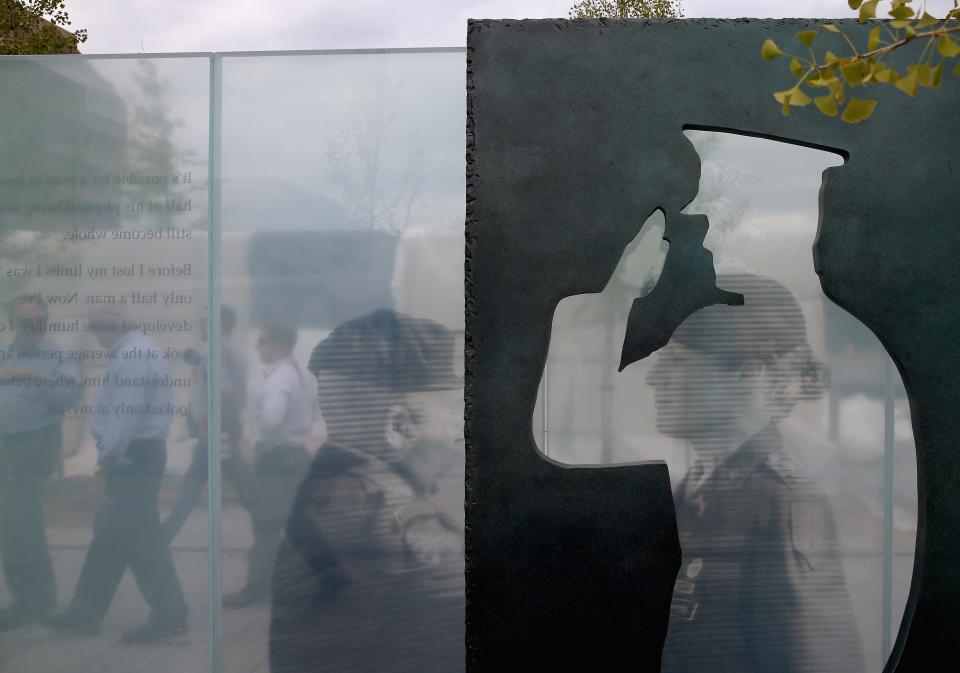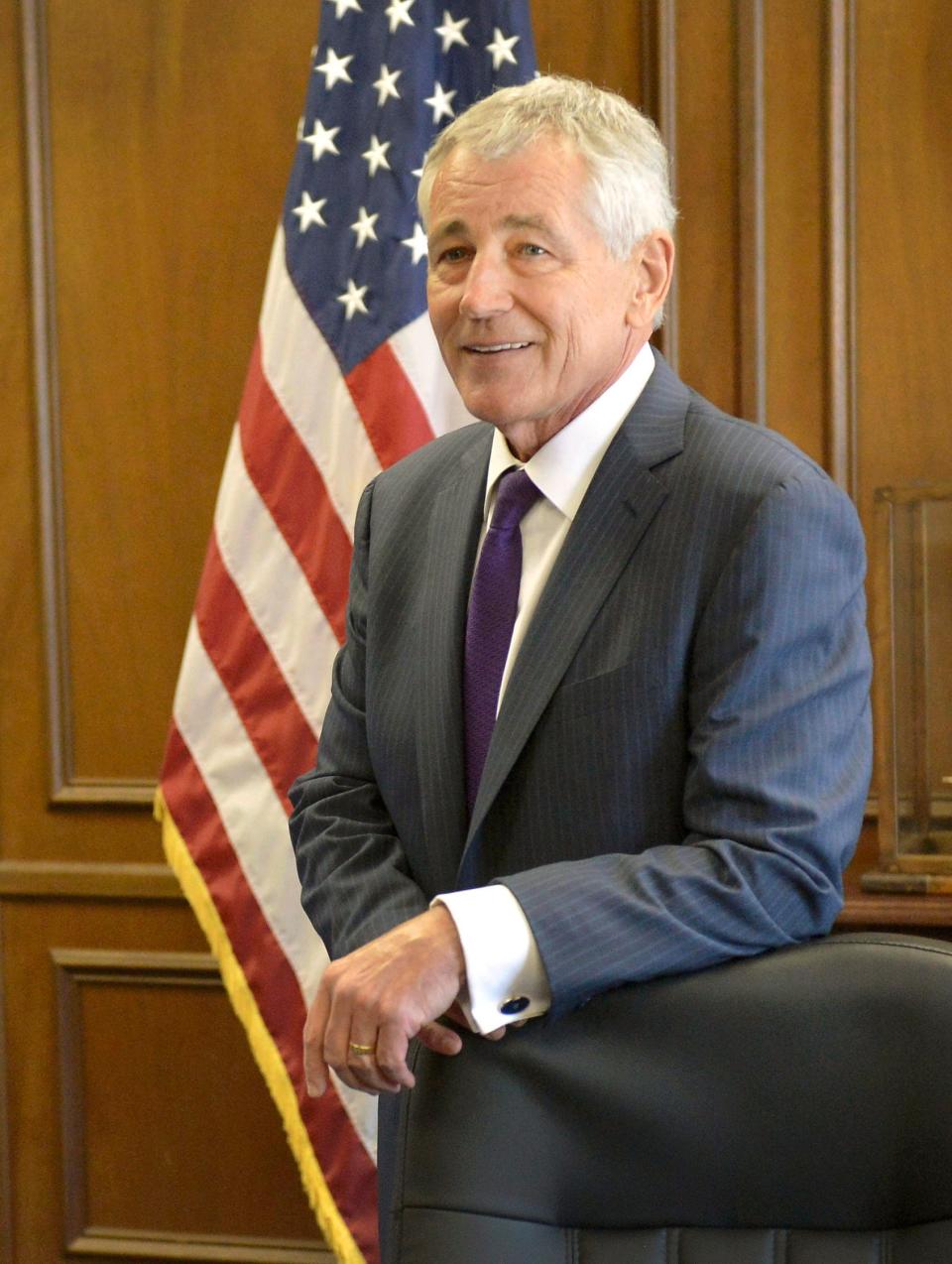We're leaving our veterans behind – not on the battlefield but in criminal justice system
Veterans Day is a time of reflection and remembrance, a national pause reminding us to honor those who have sacrificed to defend America’s security. As veterans, we appreciate the gratitude. But we also call on our nation to confront a sobering reality:
Far too often, we are leaving our veterans behind – not on the battlefield, but within the confines of the criminal justice system.
Each year, roughly 200,000 active duty service members leave the military. We expect them to resume their responsibilities to their families and communities, but we don’t give them much help with that transition.
One survey found that among veterans who had traumatic experiences, more than half feel inadequately prepared to return to civilian life, 61% had trouble paying bills in the first few years after they left the military, 42% had trouble getting medical care for themselves or their family when they got out of the military, and 4 in 10 reported challenges with alcohol or drug misuse.
While most veterans navigate such hardships successfully, many struggle with traumatic brain injury, homelessness and criminality. Roughly 1 in 3 veterans report that they have been arrested at some point in their lives, compared with 1 in 5 nonveterans.
And more than 180,000 veterans are incarcerated, accounting for nearly 8% of the state prison population and 5% of those in federal prisons.
Opinion alerts: Get columns from your favorite columnists + expert analysis on top issues, delivered straight to your device through the USA TODAY app. Don't have the app? Download it for free from your app store.
40% of incarcerated veterans have post-traumatic stress disorder
Underlying these numbers are the unique challenges, both visible and invisible, that veterans face upon returning to civilian life. Suffering from the strains of service, approximately 40% of incarcerated veterans have post-traumatic stress disorder, far exceeding the 6% prevalence of the disorder in the civilian population.
Research consistently shows that PTSD increases the risk of violent conduct, criminal activity and suicide, leading veterans to inflict harm upon themselves and the communities they once fought to protect.

There’s reason to believe these dangerous consequences will multiply.
Due to recruiting difficulties and our nation’s reliance on a smaller fighting force, today’s veterans are more likely than previous generations of soldiers to have suffered childhood trauma before their service, experienced multiple deployments and combat exposure during their service, and faced homelessness following discharge.
The price of military deployments: US military members face historic high deployments. You can be their lifeline to home.
Each of these factors increases the probability that veterans will engage in violence or other criminal behavior.
If you read the tea leaves, this means we’re facing an elevated public safety risk as a generation of veterans begin their civilian lives following two wars and two decades of conflict. The time to act is now.
How to help veterans caught in criminal justice system
Fortunately, recognition of this problem is spreading.
Veterans treatment courts, modeled after drug and mental health courts, now provide veterans who break the law and are diagnosed with mental health and/or substance use disorders with the opportunity to avoid incarceration if they commit to treatment and community supervision. Today, more than 600 VTCs operate across the country, but it’s not nearly enough.
Nearly 9 in 10 U.S. counties do not have an active veterans treatment court. Even when veterans live in a location with a treatment court, eligibility criteria – nearly half exclude veterans with any type of violent felony, for instance – restrict access.
Moreover, there are no standards ensuring that treatment courts use best practices, leaving each operating in isolation to figure out what works.
Don't defund justice: You have the right to have an attorney, but budget cuts in Congress mean you might not get one
To supplement these courts and reduce the number of veterans behind bars, we must do more to ensure former service members receive treatment for the risk factors underlying their criminal behavior. Recently, a national panel on which we serve released a blueprint that does just that, encouraging states to expand opportunities for veterans to access community supervision instead of prison and provide them with targeted treatment.

The federal government should incentivize states to adopt these reforms, ensuring the soldiers we asked to protect our country get the support they need on the homefront.
Providing that support will save lives. Veterans suffering from issues like PTSD are not only more likely to engage in violence, but also are more likely to end up back in prison after any initial involvement with the justice system. Proper support can break this cycle.

Given the strong link between justice system involvement and suicide among veterans, support can also reduce the risk that veterans will take their own lives.
The men and women who have served our nation deserve our care, especially when they find themselves ensnared in the justice system due to problems stemming from their time in uniform. As we honor their service on Veterans Day, we must uphold the principles that guide us on the battlefield. We must never leave them behind.
Chuck Hagel, a Vietnam War combat veteran and two-term U.S. senator from Nebraska who was the nation’s 24th secretary of Defense, is chairman of the Council on Criminal Justice's Veterans Justice Commission. Eileen Moore, a combat nurse with the U.S. Army in Vietnam, is an associate justice for the California 4th District Court of Appeal and serves on the commission.
You can read diverse opinions from our Board of Contributors and other writers on the Opinion front page, on Twitter @usatodayopinion and in our daily Opinion newsletter. To respond to a column, submit a comment to letters@usatoday.com.
This article originally appeared on USA TODAY: Veterans Day: Criminal justice fails soldiers struggling as civilians

